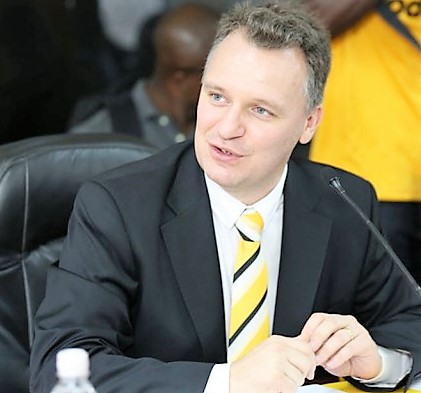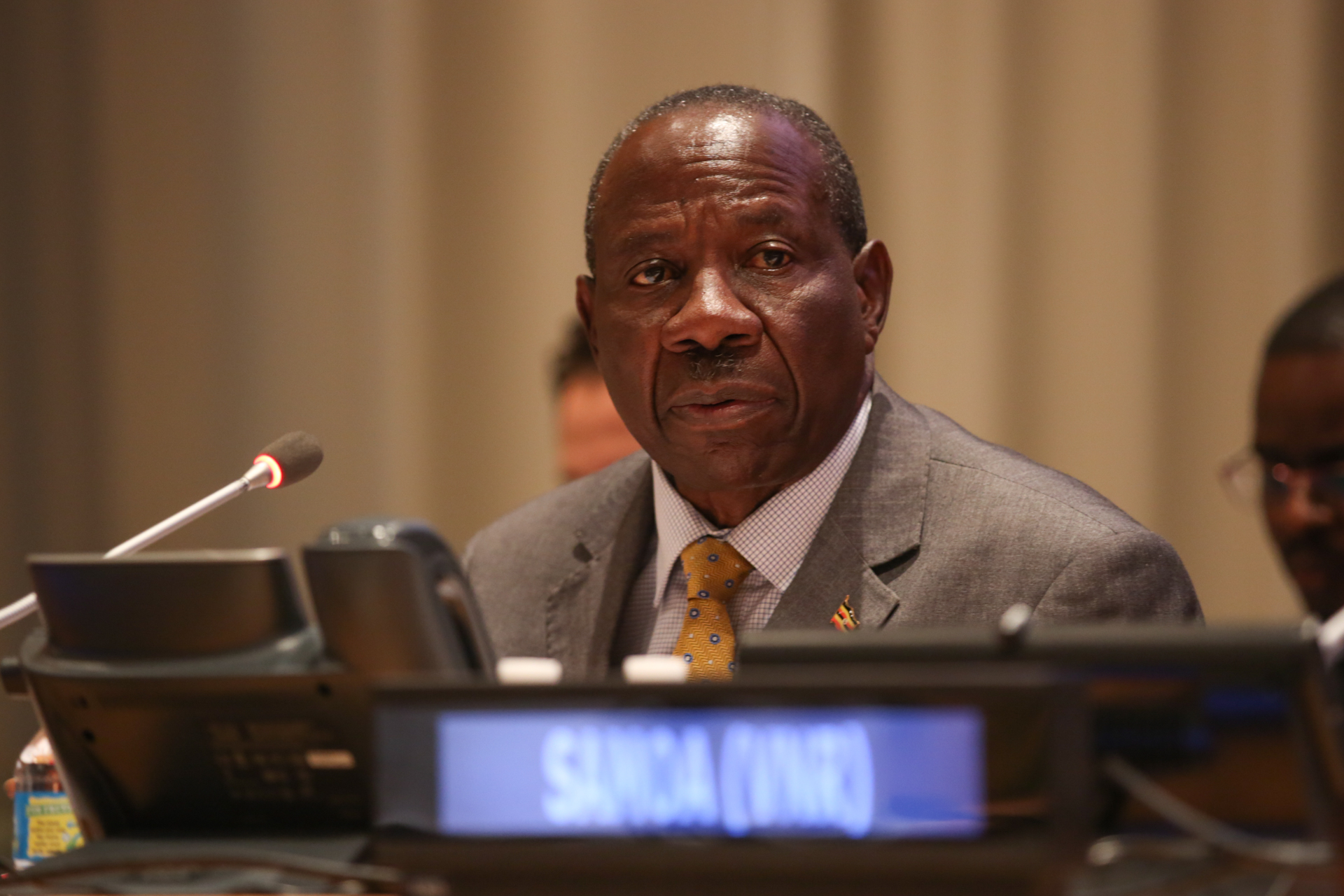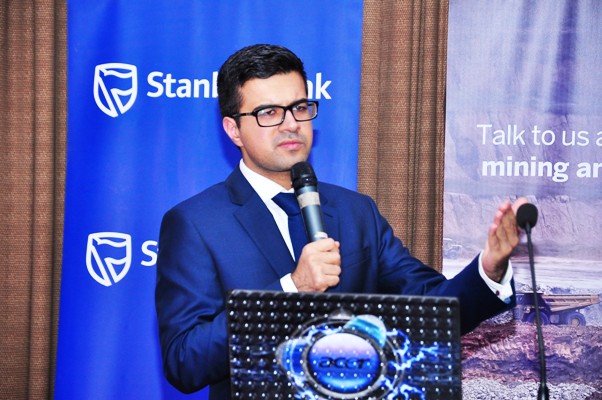MTN Uganda CEO, Wim Vanhelleputte
MTN Uganda’s Initial Public Offer is the biggest in the sense of Uganda’s stock market in many ways, including the fact that the company’s value is slightly bigger than the combined value of all the companies currently listed on the Uganda Securities Exchange.
According to current trading data, the Uganda Securities Exchange handled companies whose total capitalisation is about 4.3 trillion shillings, compared to MTN’s 1.25 billion dollars, which translates to about 4.5 trillion shillings.
The coming of the South African-owned MTN thus doubles the USE market capitalization.
The public has been offered almost 4.5 billion shares worth close to 900 billion shillings, and the company says it is giving priority to Ugandan investors.
The public however, is more concerned about what MTN is in term of business and, therefore, its profitability, which will determine how much they get as return on their investments.
MTN Uganda, has several subsidiaries in Uganda, some of which have since become dormant, including the MTN Publicom Uganda Ltd, which operated public call boxes, and MTN VillagePhone Uganda Limited.
MTN VillagePhone was formed in 2003 as a charitable, poverty-reduction joint venture collaboration with Grameen Foundation to provide micro-loans to the rural poor in the form of mobile phones, and they would then use the phones to operate businesses providing communications services to the local community.
The third subsidiary company, MTN Mobile Money Uganda Ltd, which was licensed mid this year handling electronic finance and contributes 25 percent of the company’s total revenues, and the company expects it to continue growing, at least in the mid–term.
Mobile money currently accounts for at least 52% of the mobile money market, and has about 8.5 million active customers.
According to the National Payment Systems Act, the Mobile Money license was issued for an indefinite period or until the Bank of Uganda decides otherwise.
However, the company says it can never be sure of the regulations not changing for the worse.
Apart from Mobile money, the company’s prospectus states that digital services currently are the most prospective of the telecommunication services globally and in Uganda.
MTN’s digital services include entertainment, information and lifestyle digital content solutions in music, video, gaming and infotainment and lifestyle-based services, among others.
MTN Uganda Limited is incorporated in Uganda under the Companies Act and is domiciled in Uganda.
It is a subsidiary of MTN International (Mauritius) Limited, which is in turn owned by the MTN Group Limited, which is incorporated in the Republic of South Africa and is listed on the Johannesburg Stock Exchange.
So the ultimate parent company of MTN Uganda is the MTN Group based in South Africa, which owns 96 percent of the shares, while local businessman, Charles Mbiire owns the other 4 percent.
As of August 2021, the company had 15 million subscribers and controlled slightly more than half of the total mobile telecom subscribers in the country, followed by Airtel with 10 million.
Its revenues per year have steadily grown from 1.3 trillion in 2016 to 1.87 trillion in 2020, mainly pushed by the growths in mobile money and data segments.
The company handles mobile money transactions worth 100 billion shillings daily, and by the end of 2020, it was holding 655 billion shillings in mobile money deposits, up from 450 billion in 2019.
Over the period 2016-2020, the company’s net profits have risen from 96 billion to 321 billion shillings, and the Chief Executive Officer says this is expected to continue growing.
However, all these are not a guarantee that an investor who buys shares in the company will get exactly what they want or expect.
Most people talked to about the MTN shares see investment in stocks as a money-making venture in form of dividends at the end of every year.
But experts say it is easier to try a buy-and-sell approach where one buys when the shares prices are down and sell when the prices rise, so as to make an immediate profit.
A private trade advisor, Acacia Ssembajjwe, says one should invest in stocks for long-term objectives.
“That is where brokers come in, it helps to know how to read a financial statement and look at buying shares as buying into a company and not a get rich scheme,” says a private trade advisor. “Different investments suit different people. For one planning to build apartments, MTN might be a good alternative. He gets his 3% after tax dividends and hopes the other 5% reflects in the market prices over time. But if you had money and wanted a boda, returns are better.”
MTN’s policy provides for a dividend payout of not less 60% of the profits.
If the minimum payout, that is 60 percent was to be made based on the 2020 profits of 320 billion, the company would give out a total of 192 billion shillings.
The company expects to raise close to 900 billion shillings in the sale of shares, and says the money will go to the shareholders who have sold.
“The proceeds of the IPO go to the selling shareholder after deduction of all expenses and applicable taxes,” says Vanhelleputte.
This is contrary to public sentiments that the company is looking for the money to pay off debts.
“The Company’s total indebtedness, as of 30 June 2021, was 194 billion shillings and 45.3 million dollars (160 billion shillings) arising out of unsecured syndicated loan facilities from Stanbic Bank Uganda, Absa Bank Uganda, Citibank Uganda, Citibank N.A London and Standard Chartered Bank Uganda,” says the prospectus.
The CEO says they are planning to invest more than 1 trillion shillings in network expansion to meet the licensing guidelines which provide for coverage of at least 90% of Uganda’s land mass.
-URN





